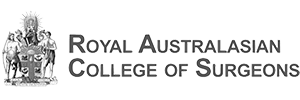Medical Oncology
What is Medical Oncology?
Oncology is a sub-specialty of medicine dedicated to the investigation, diagnosis and treatment of people with cancer or suspected cancer. Oncology can be subdivided into Medical Oncology, Radiation Oncology, and Surgical Oncology.
A Medical Oncologist is a doctor specializing in treatment of cancer using chemotherapy or other medications, such as hormone therapy, targeted therapy and immunotherapy.
What is Chemotherapy?
Chemotherapy is a drug that kills rapidly growing cells in the body. It is usually used to treat cancer, as cancer cells grow and divide faster than other normal cells.
Chemotherapy used to treat sarcoma can either be a single drug or multiple drugs in combination. Each chemotherapy regimen has a treatment cycle during which chemotherapy is given at the start of the cycle followed by a period of recovery.
The number of treatment cycles given depends on the chemotherapy regimen, if it is before or after surgery, or if it is needed longer-term to control the cancer growth.
When is Chemotherapy Considered?
There are different chemotherapy drugs used in the treatment of sarcoma; the specific regimen your oncologist recommends for you will depend on several factors such as the stage of your cancer, your overall health, and the goal of treatment.
Chemotherapy has several different roles, and may be given on its own, as primary treatment for sarcoma, or as part of a treatment plan that includes surgery and/or radiation therapy.
1.Neoadjuvant Chemotherapy
Chemotherapy is given to shrink the tumour before surgery and may increase the possibility of the surgeon being able to remove it completely with clear margins.
For treatment of some types of soft tissue sarcoma, your oncologist may recommend chemoradiation therapy before surgery. The approach we use is termed the “modified Eilber protocol”, which begins with chemotherapy given through a drip to the vein over 3 days followed by radiation therapy given twice a day for two weeks. After completing the Eilber protocol, patient will have 4 to 6 weeks to recover before surgery.
2.Adjuvant Chemotherapy
Chemotherapy is given after surgery to kill any possible remaining microscopic cancer cells and reduce the risk of cancer recurring. It usually starts 4 to 12 weeks after your operation, depending on your recovery, and continues for up to 6 months.
3.Palliative Chemotherapy
When it is not possible to remove the sarcoma with surgery (locally advanced), or it has spread to other parts of your body (metastatic), chemotherapy may be given to delay or slow sarcoma growth and may reduce symptoms related to the sarcoma by reducing the amount of disease.
How is Chemotherapy Given?
Intravenous (IV): Most often, chemotherapy is given directly into a vein. It may take from a few minutes to several hours. It may be necessary for the chemotherapy to slowly infuse over several days via a small pump that you go home with. Insertion of a port under the skin may be necessary for this.
Oral: Some chemotherapy is now given in tablet form. There is still a very strict dose regimen, usually involving specific numbers of days on and off the tablets.
How is Chemotherapy Given?
You will receive chemotherapy in an ‘Oncology Day Centre’, run by specialist chemotherapy nurses. It will usually take several hours to receive your chemotherapy, after which you can go home.
What are the Side Effects of Chemotherapy?
Chemotherapy for sarcoma can produce both short term and long-term side effects.
Most of the side effects appear during the treatment process (i.e. short term side effects). The common side effects include fatigue, poor appetite, nausea, vomiting, mouth ulcers and hair loss. These symptoms typically resolve within a few weeks after completing your treatment. Chemotherapy also affects the blood cells, in particular the white blood cells which will temporarily drop, resulting in a temporarily weakened immune system which may increase the risk of infection.
Some longer-term side-effects from chemotherapy may include damage to the nerve endings causing numbness and tingling in the fingers and toes (peripheral neuropathy), kidney damage and damage to heart function (heart failure). The risk of these longer-term side effects is small, and patients are closely monitored for these.
Your medical oncologist will discuss these in more detail. They are specialized in preventing and controlling these side effects and supporting you through Chemotherapy.
Targeted Drug Therapy
Targeted medication treatments act to target specific gene abnormalities and proteins, which drive the sarcoma to grow and survive. Targeted medication treatments can kill cancer cells by inhibiting these aberrations.
Targeted therapy medications may be used in the treatment of soft tissue sarcoma.
Researchers find new targets for more sarcomas each year. They then create and test new drugs for these targets.
Immunotherapy
Immunotherapy is a type of cancer treatment that makes use of your immune system. Because cancer cells create proteins that help them conceal the body's natural ability to fight them, your body's disease-fighting immune system may not attack your sarcoma.
Immunotherapy works by interfering with the immune system's natural processes to enable it to more effectively fight sarcoma growth. Immunotherapy is often reserved for patients with advanced cancer and its role in treating sarcoma is still limited. More research is ongoing to explore its potential as treatment for sarcoma.
How does the immune system fight cancer?
Different types of immunotherapy work in different ways.
Some immunotherapy treatments help the immune system stop or slow the growth of cancer cells. Others help the immune system destroy cancer cells or stop the cancer from spreading to other parts of the body.
Immunotherapy treatments can be used alone or combined with other cancer treatments. There are many types of immunotherapy. They include:
- Monoclonal antibodies and tumor-agnostic treatments, such as checkpoint inhibitors
- Oncolytic virus therapy
- T-cell therapy
- Cancer vaccines
The type of drug, dose, and treatment schedule will depend on many factors. These can include the type of cancer, size, location, and where it has spread. Your age, general health, body weight, and how well you can cope with side effects are also important.



